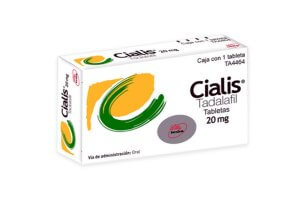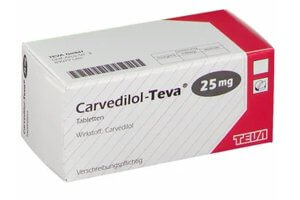Sleep disorders, particularly insomnia, have become increasingly common in today’s fast-paced world. With so many medications available, choosing the right one can feel overwhelming. Two of the most discussed options are Quviviq and Zolpidem. While both are prescribed for insomnia, they differ significantly in their mechanism, effects, safety profile, and long-term usage.
In this article, we’ll guide a detailed comparison of Quviviq vs Zolpidem to help you make a more informed decision, whether you’re dealing with occasional sleeplessness or chronic insomnia.
Table of Contents
ToggleUnderstanding Insomnia and the Need for Sleep Medications
Before diving into the specifics, it’s important to understand why medications like Quviviq and Zolpidem are prescribed. Insomnia isn’t just a matter of staying up late—it can disrupt your health, productivity, mood, and overall quality of life. People struggling with sleep often turn to prescription medications when lifestyle changes and over-the-counter remedies fall short.
Doctors usually recommend sleep aids for short-term relief, but newer drugs like Quviviq are being evaluated for long-term use due to their unique mechanism of action.

What Is Quviviq?
Quviviq (daridorexant) is a newer sleep medication approved by the FDA in 2022. It belongs to a class called dual orexin receptor antagonists (DORAs). Rather than sedating the brain like traditional sleep aids, Quviviq works by blocking orexin, a neurotransmitter that promotes wakefulness.
Key Features of Quviviq:
- Targets the wakefulness system directly
- Non-sedative mechanism
- Minimal risk of dependency
- Designed for long-term use
Because it doesn’t slow brain activity broadly, it’s believed to offer fewer side effects the next morning, like grogginess or impaired coordination. This makes Quviviq a favorable choice for people who want to avoid the “hangover” effect associated with some traditional sleep medications.
What Is Zolpidem?
Zolpidem, sold under brand names like Ambien, is a more established sleep medication that has been used for over two decades. It belongs to a class known as non-benzodiazepine hypnotics, often referred to as “Z-drugs.”
Zolpidem enhances the effects of GABA, a neurotransmitter that calms brain activity. This leads to rapid sedation and sleep induction.
Key Features of Zolpidem:
- Quick onset of action
- Effective for short-term insomnia
- Higher risk of next-day drowsiness
- Potential for dependence and withdrawal
While Zolpidem is widely prescribed, its sedative nature means it can interfere with cognitive functions if not used properly. It’s also typically prescribed for short-term use only, due to the risk of tolerance and addiction.
Quviviq vs Zolpidem: Mechanism of Action
One of the most significant differences between Quviviq and Zolpidem lies in how they help you sleep.
- Quviviq: Blocks orexin to reduce wakefulness without causing widespread sedation.
- Zolpidem: Boosts GABA to slow down brain activity, promoting sedation and sleep.
Quviviq’s targeted mechanism means it may allow for more natural sleep cycles, whereas Zolpidem forces the brain into a sedated state.
Efficacy and Onset Time
When comparing how well each drug works, the situation becomes more individualized.
- Zolpidem typically induces sleep within 15-30 minutes, making it ideal for those who struggle to fall asleep quickly.
- Quviviq can take about 1-2 hours to reach peak effectiveness, but its effects are more sustained and promote improved sleep quality over time.
While Zolpidem might provide faster relief, Quviviq tends to result in less sleep fragmentation and better daytime functioning, especially after consistent use.
Side Effects Comparison
Understanding the side effects can help determine which medication might be better suited for your needs.
Common Side Effects of Quiviq:
- Headache
- Fatigue
- Nausea
- Dizziness
Quviviq has a relatively low risk of next-day drowsiness or motor impairment, making it safer for people who need to be mentally alert the next morning.
Common Side Effects of Zolpidem:
- Drowsiness
- Dizziness
- Diarrhea
- Memory problems
- Sleepwalking or performing activities while not fully awake (in rare cases)
Zolpidem’s sedative action can lead to next-morning grogginess, impaired driving, and even risky behaviors during sleep in rare cases. For this reason, it’s not ideal for long-term, unsupervised use.
Dependence and Withdrawal Risk
This is another crucial point in the Quviviq vs Zolpidem discussion.
- Zolpidem carries a higher risk of dependence, especially when used for longer than prescribed. People may find they need increasing doses to achieve the same effects.
- Quviviq, by contrast, has shown a very low potential for abuse and dependency in clinical trials.
This makes Quviviq a better choice for those who have a history of substance use or are concerned about becoming reliant on sleep medication.
Cost and Insurance Coverage
Cost is often a deciding factor for many patients.
- Zolpidem is available in generic form, making it much more affordable and widely covered by insurance.
- Quiviq, being newer, is still branded and more expensive, though many insurance plans have started covering it under certain conditions.
Patients should consult their insurance provider and compare out-of-pocket costs, especially if planning for long-term use.
Suitability Based on Age and Health
- Elderly patients may benefit more from Quviviq due to its lower risk of falls and confusion, side effects commonly seen with sedatives like Zolpidem.
- People with respiratory issues, liver problems, or mental health conditions should use caution with Zolpidem and consult their healthcare provider about safer options like Quviviq.
Quviviq vs Zolpidem: Which One Is Right for You?
Choose Quviviq if:
- You need a long-term sleep solution
- You want to avoid next-day grogginess
- You’re concerned about dependence or abuse
- You have other medications that interact poorly with sedatives
Choose Zolpidem if:
- You have short-term insomnia
- You need a medication that works quickly
- Cost and accessibility are top concerns
- You can manage the drug under medical supervision
Final Thoughts
Both Quviviq and Zolpidem have their place in insomnia treatment, but the right choice depends on your specific health profile, sleep challenges, and lifestyle needs. Quviviq represents a modern, more targeted approach to treating insomnia with lower risk and better tolerability over time, whereas Zolpidem offers quick relief and affordability for short-term situations.Before starting either medication, it’s essential to consult with your healthcare provider. They can assess your symptoms, medical history, and overall goals to recommend the most appropriate and safe option. In the end, the best sleep aid is one that helps you reclaim restful nights, without compromising your well-being the next day.






